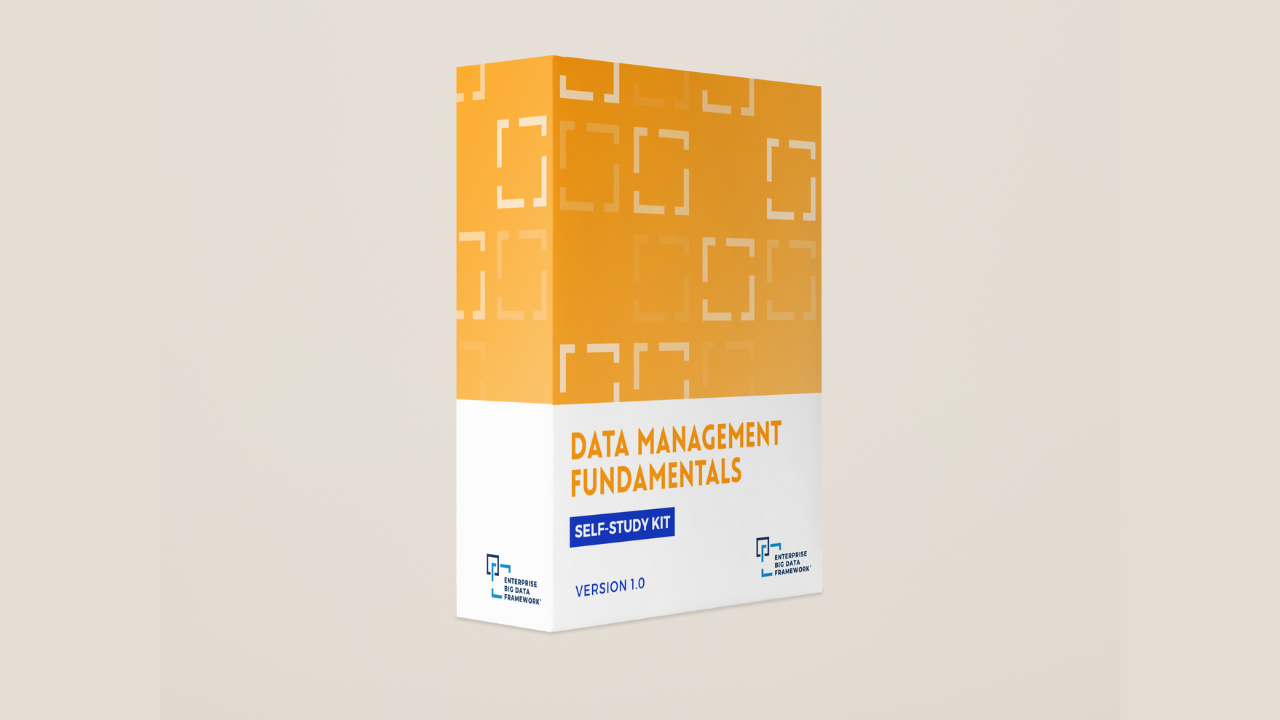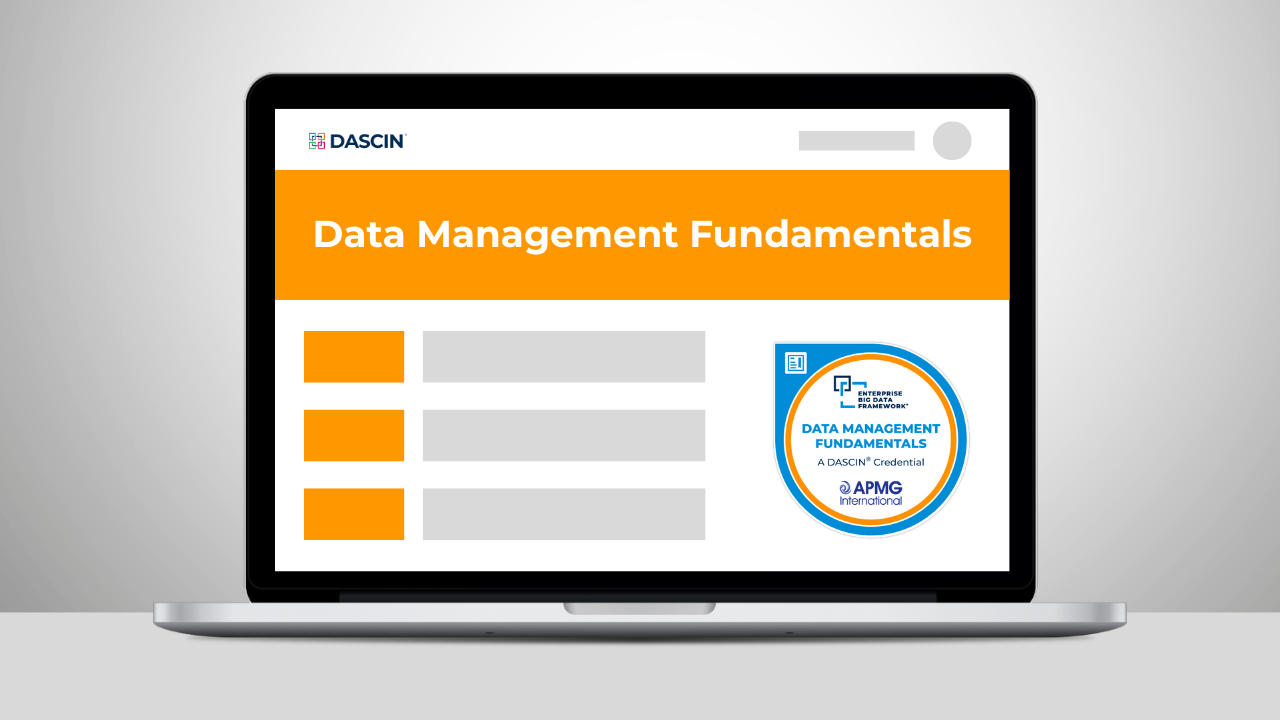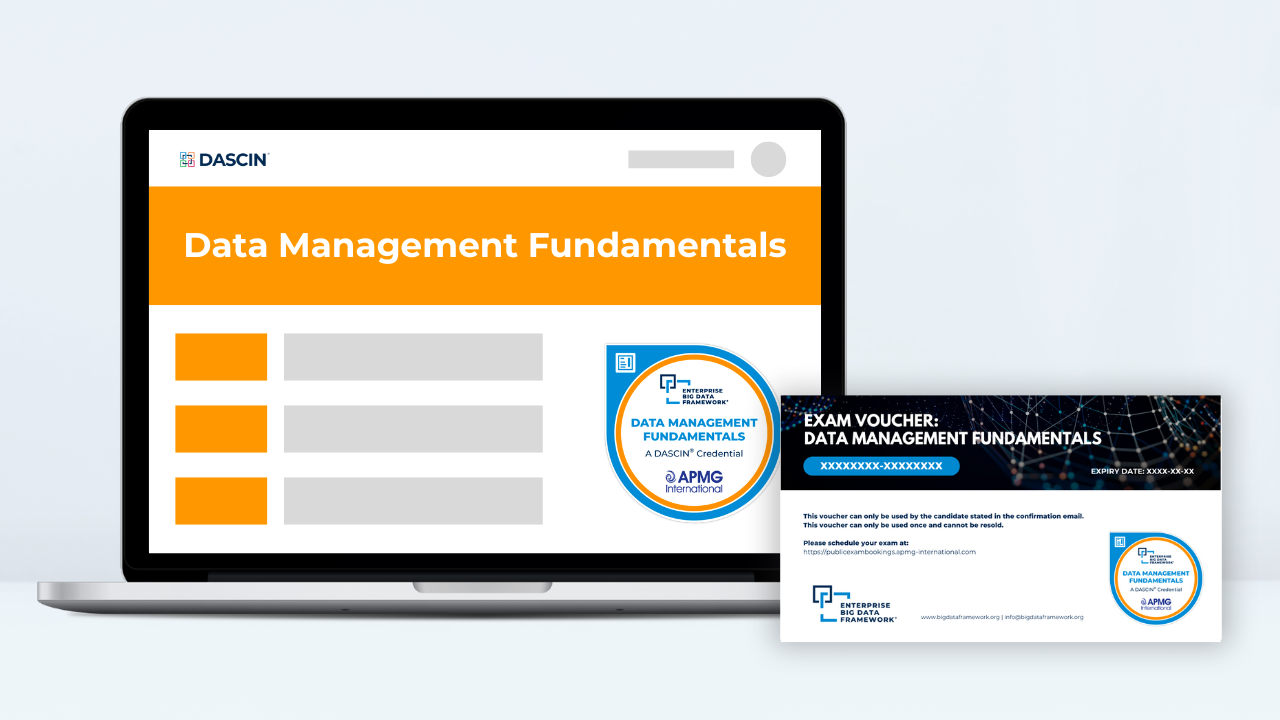Course Summary
The Data Management Fundamentals course provides a comprehensive introduction to the key principles and practices of effective data management. Designed for professionals who are new to the field or looking to sharpen their data management skills, this course covers essential topics such as data governance, data quality, and the lifecycle of data. Participants will gain a solid understanding of how data is collected, stored, processed, and utilized within an organization, ensuring that data is accessible, accurate, and secure. By the end of the course, students will have the knowledge to manage data in a structured and efficient manner, supporting business operations and decision-making.
Throughout the course, learners will explore best practices for organizing, cleaning, and maintaining high-quality data. They will also dive into data governance frameworks that ensure compliance with privacy regulations and industry standards. The course emphasizes the importance of data quality and consistency, teaching participants how to implement strategies that improve data integrity and reduce errors. Real-world case studies will illustrate how organizations successfully manage their data assets to drive business growth and optimize performance.
This hands-on, practical course also introduces participants to popular data management tools and technologies that help streamline processes and enhance data accessibility. Whether you’re managing a small dataset or overseeing an enterprise-wide data strategy, the Data Management Fundamentals course provides the essential skills required to oversee data effectively in any organization. With an emphasis on both strategic and operational aspects, this course will empower you to make informed, data-driven decisions and contribute to the success of your organization’s data management initiatives.
detailed course Information
The learning objectives of the Data Management Fundamentals course include:
- Understanding Data Management: Gain a solid understanding of the key concepts and practices involved in managing data within an organization, including the role of data in supporting business processes and decision-making.
- Data Management Principles: Learn the core principles that guide effective data management, focusing on ensuring data consistency, integrity, and accessibility across the organization.
- Data Management and Data Governance: Understand the relationship between data management and data governance, exploring how governance frameworks help establish clear roles, responsibilities, and policies to ensure data is accurate, secure, and compliant with regulations.
- Establishing Data Quality: Learn the processes and techniques necessary to assess, monitor, and improve data quality, including data profiling, cleansing, and validation practices to ensure high-quality data for decision-making.
- Data Stewardship: Understand the concept of data stewardship and the critical role of data stewards in managing data assets, ensuring compliance, and maintaining the integrity and quality of data throughout its lifecycle.
- Data Management Best Practices: Discover industry best practices for managing data, including frameworks for data integration, data security, and data privacy, as well as methods to align data management with organizational goals.
These learning objectives are designed to provide participants with the essential knowledge and skills to implement effective data management practices within their organization. The Data Management Fundamentals course ensures a strong foundation in data governance, quality, and stewardship, empowering professionals to manage data with confidence and adhere to best practices in today’s data-driven world.
The Data Management Fundamentals course is a structured, interactive program designed to provide a comprehensive foundation in data management practices. The course is divided into distinct modules, each focusing on key elements of data management and delivered through engaging sessions designed for practical application.
Module 1: Understanding Data Management
- Introduction to data management and its role in supporting business processes
- Overview of the data management lifecycle from creation to disposal
- Recognizing the value of data as a strategic asset in organizations
Module 2: Data Management Principles
- Key principles of data management, including data consistency, accuracy, and accessibility
- Understanding data governance, security, and privacy as foundational components of data management
- Best practices for aligning data management with organizational objectives
Module 3: Data Management and Data Governance
- The relationship between data management and data governance
- Key frameworks and policies for ensuring compliance, data quality, and security
- The roles and responsibilities of data owners and stewards in governance
Module 4: Establishing Data Quality
- Techniques for assessing, monitoring, and improving data quality
- Methods for data profiling, cleansing, and validation
- Best practices for ensuring data accuracy, completeness, and consistency
Module 5: Data Stewardship
- The role of data stewards in managing and protecting data assets
- Understanding data stewardship responsibilities and accountability
- Strategies for fostering a data stewardship culture across the organization
Module 6: Data Management Best Practices
- Industry best practices for managing data across its lifecycle
- Practical frameworks for data integration, security, and privacy
- Tools and technologies that support efficient and compliant data management
This course provides participants with the essential knowledge and skills needed to effectively manage and govern data within their organization, ensuring data quality, security, and compliance while aligning with best practices for data management.
The Data Management Fundamentals course is designed for professionals who are involved in data management, governance, or decision-making and seek to enhance their understanding of how to manage and govern data effectively. The target audience includes:
- Data Managers: Professionals responsible for overseeing data management practices within an organization, ensuring data is accurate, secure, and accessible.
- Data Analysts: Individuals who work with data to support decision-making and require a deeper understanding of data management processes to enhance the quality and reliability of their analysis.
- Data Governance Professionals: Those involved in establishing and maintaining governance frameworks, ensuring compliance with regulations, and overseeing data stewardship within their organizations.
- Data Stewards: Individuals who manage and maintain specific datasets, ensuring their quality, integrity, and security throughout their lifecycle.
- IT Professionals: Individuals working in IT departments who are responsible for supporting data infrastructure, integration, and security.
- Business Leaders and Decision Makers: Managers and executives who rely on data-driven insights for strategic decisions and want to understand how effective data management practices can improve organizational outcomes.
- Anyone Interested in Data Management: Individuals looking to expand their knowledge of data management principles, frameworks, and best practices, regardless of their specific role or industry.
This course is ideal for those looking to build a strong foundation in data management, whether for career advancement or to improve their organization’s data practices.
The Data Management Fundamentals course concludes with an official APMG Examination, designed to validate the participant’s understanding of fundamentals data concepts. This structured assessment ensures that learners have grasped the foundational knowledge required to establish successfull data managemeent confidently. Below are the key details about the examination:
- Material Allowed: This is a closed book exam. Study materials, including the course guide, are not permitted during the examination.
- Exam Duration: The exam is 60 minutes long. Candidates taking the exam in a language other than their native or working language receive an extra 25% of time, extending the duration to 75 minutes.
- Marks and Scoring: The exam consists of 40 multiple-choice questions, each worth 1 mark. There is no negative marking, and unanswered questions will receive no marks. To pass, participants must score 26 marks (65%) or more. An elevated pass mark of 30 marks (75%) is required for individuals aspiring to become trainers.
- Complexity: The exam includes questions at Bloom’s Levels 1, 2 and 3. Bloom’s Level 1 focuses on recalling facts, terms, and basic concepts, such as defining data structures or identifying its key components. Bloom’s Level 2 requires grasping the meaning of concepts, such as explaining how machine learning differs from data analysis. Bloom’s Level 3 involves using acquired knowledge in practical contexts, such as determining which visualization is best to convey a message.
This examination is designed to confirm that participants have achieved a solid foundation in Data Management, enabling them to apply their knowledge effectively and confidently in real-world scenarios.
Digital Badge

Testimonials & Course Reviews
This course gave me the confidence to implement a data governance framework in my department. The real-world case studies and practical tools were invaluable for applying the concepts to government processes.
Managing data quality for a global NGO comes with unique challenges, and this course provided strategies I could implement immediately. The focus on compliance and privacy regulations was particularly relevant for our fieldwork.
As someone working on environmental projects, this course was eye-opening. It taught me how to clean and organize our datasets, ensuring our analysis supports impactful, data-driven decisions.
The Data Management Fundamentals course exceeded my expectations. It covered everything from technical skills to strategic data management, helping me align our smart city projects with international standards.
The hands-on approach was a game-changer. I now understand how to streamline our health data collection and ensure quality across multiple regions, which is crucial for decision-making in our organization.
The course helped me bridge the gap between strategic and operational data management. The introduction to tools and technologies was incredibly practical for our company’s enterprise-wide data strategy.
Managing data for our programs used to feel overwhelming, but this course broke it down into manageable steps. I feel equipped to ensure the accuracy and security of our beneficiary data now.
The practical examples of data lifecycle management were especially useful. I’ve already applied what I learned to improve how our company processes and stores customer data.






